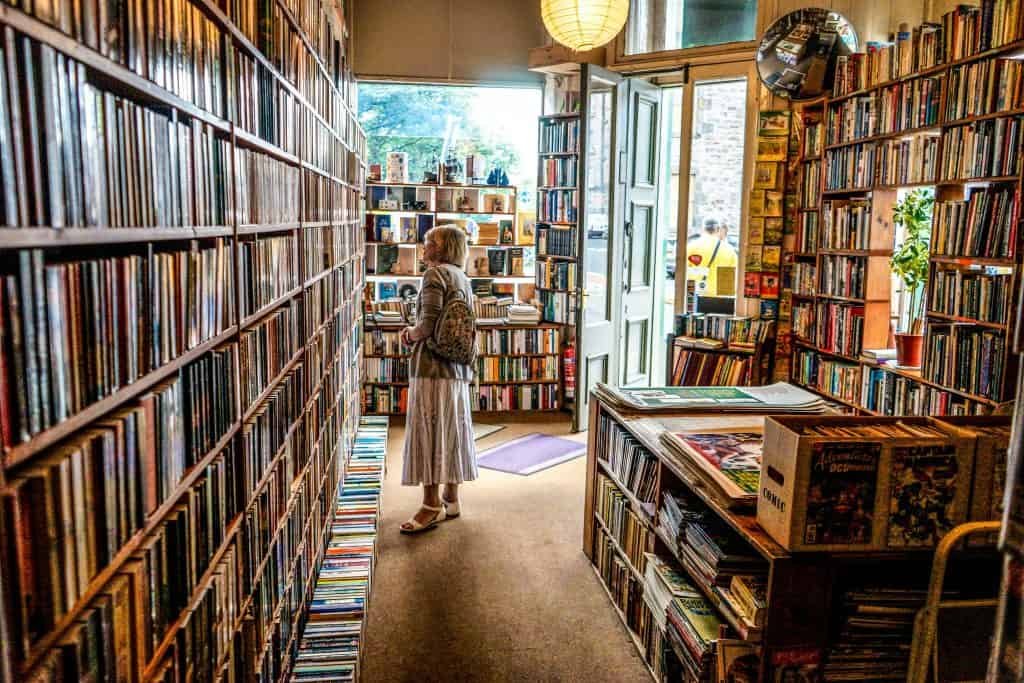
10 Apr The Digital Dilemma: Navigating the Intersection of Technology and Literacy in 2024
Despite rising literacy rates, our engagement with text faces a silent crisis in the digital era. As we grapple with the allure of instant information and superficial engagement, the erosion of immersive reading poses a societal predicament with ethical implications. The digital realm, while offering unprecedented access to knowledge, often fosters a culture of skimming and superficiality, challenging the very essence of literacy.
This dilemma prompts critical questions about the nature of literacy in the digital epoch and the values we uphold in the face of information overload. How do we preserve depth, reflection, and empathy amidst the digital distractions that surround us? The Digital Dilemma invites us to confront these challenges with introspection, seeking not only to understand the intersection of technology and literacy but also to chart a path forward that preserves the essence of reading in our increasingly digital world.

The Silent Crisis
In the current age defined by rapid technological advancement and unprecedented availability of information, we confront a silent crisis that imperils the very essence of meaningful reading experiences. Despite the encouraging trend of rising literacy rates worldwide, there exists a subtle yet profound threat that lurks beneath the surface. While individuals possess the ability to decipher written language, the depth and richness inherent in the act of reading seem to be gradually slipping away. This erosion is particularly concerning given the backdrop of the digital revolution, which is often celebrated for its role in democratizing access to knowledge. Paradoxically, however, the same technological advancements that have facilitated widespread dissemination of information now cast a shadow over the immersive journey of deep reading. Throughout history, profound reading has played a pivotal role in shaping minds and cultures, fostering critical thinking, empathy, and cultural understanding. Yet, in the face of digital distractions and the fast-paced nature of modern life, the art of sustained, contemplative reading is increasingly at risk of being sidelined or diluted. As we navigate this silent crisis, it becomes imperative to recognize the importance of preserving and nurturing the profound reading experience, ensuring that future generations continue to benefit from its transformative power.

The Echoes of Nostalgia
Across the annals of time, each epoch distinguished by the emergence of novel forms of media has inevitably engendered a sense of resistance, a poignant longing for the cherished aspects of yesteryears. In the tapestry of human history, the echoes of nostalgia resound with a familiar cadence, weaving threads of sentimentality and reflection into the fabric of cultural evolution. However, the contemporary landscape presents a tableau that is both reminiscent of the past and uniquely characteristic of the present moment. Today’s concerns, which echo the apprehensions of preceding generations, are imbued with a sense of urgency, underscored by discernible shifts in the dynamics of reading and literary engagement. As we navigate the digital age, where screens illuminate our lives and information inundates our senses, the essence of reading undergoes a profound metamorphosis, warranting a nuanced exploration of its evolving role in shaping individual consciousness and collective identity. Thus, in this intersection of nostalgia and innovation, lies the imperative to unravel the complexities of contemporary reading practices and to discern the pathways that lead to a deeper understanding of the human experience.
The Illiteracy Paradox

Educational Abundance, Intellectual Scarcity
We live in a time of unprecedented access to knowledge and learning materials, as we find ourselves in an era of abundant education. People today have more options than ever before to learn new things because to the widespread use of digital media. But behind all of this richness, there is an alarming trend of intellectual scarcity. Many people, even if they have an education, do not possess genuine literacy, which is the ability to critically engage and comprehend the information they come across. A culture of surface-level information consumption has been made possible by the digital age, where rapid consumption and shallow involvement frequently take precedence over the skill of reading, comprehending, and integrating complicated ideas. In this environment, having a large body of data and information does not always equate to true intellectual depth or enrichment.
Philosophical Inquiry
There is a significant reworking of the definition of literacy. It makes us wonder if reading comprehension is all that literacy is about, or if it involves a deeper and more complex interaction with the concepts, stories, and thoughts found in written material. Philosophical investigation of literacy forces us to consider the complex aspects of understanding and interpretation at a time when knowledge is plentiful but judgment is frequently deficient. Genuine literacy goes beyond the superficial reading of texts and encourages readers to evaluate, decipher, and put information in perspective. It entails exploring the underlying ideas, ramifications, and connections between concepts in addition to knowing words in their literal sense.
The Digital Realm: A Double-Edged Sword

Unprecedented Access
Following the digital revolution, humanity is living in a time where knowledge is more accessible than ever. The majority may now easily access what was formerly thought to be the exclusive realm of the wealthy few. The digital domain functions as an extensive knowledge base, providing people from all backgrounds with the chance to investigate, acquire, and interact with a multitude of data unlike anything seen before. But in the middle of this unheard-of access, another set of difficulties appears, offering chances as well as difficulties to overcome.
Add Your Heading Text Here
The traditional art of reading transforms, often reduced to a series of rapid movements: skimming, scrolling, and a superficial glance that barely scratches the surface of the vast ocean of knowledge available. Rather than delving deep into the intricacies of text, many individuals find themselves merely skimming through information, grasping only its superficial layers without truly engaging with its essence. In a culture dominated by instant gratification and information overload, the pursuit of depth and intellectual engagement becomes increasingly elusive. The superficial glance, characterized by fleeting attention spans and surface-level interaction, stands as a barrier to meaningful comprehension and critical analysis. In this environment, the profound depths of intellectual exploration often remain untouched, overshadowed by the allure of quick consumption and easy accessibility. As such, the challenge lies not only in accessing information but also in cultivating the patience, discipline, and curiosity necessary to engage with it thoughtfully and meaningfully in the digital age.
The Erosion of Higher-Level Reading

Historical Connection
Throughout history, immersive reading has served as the silent architect of civilizations, playing a pivotal role in shaping societies, nurturing democratic ideals, and fostering empathy among individuals. From the sacred texts of ancient civilizations to the literary masterpieces of the Renaissance and beyond, the act of delving deep into written works has been instrumental in the advancement of human thought, understanding, and social progress. Immersive reading has not only provided individuals with access to knowledge and ideas but has also served as a conduit for empathy, allowing readers to inhabit the perspectives and experiences of others, thus fostering greater understanding and compassion. Its erosion in contemporary society is not merely a personal loss but a profound societal, and even civilizational, predicament. As the depth of engagement with written text diminishes, so too does our connection to the collective wisdom and cultural heritage that have enriched humanity throughout the ages.
Ethical Dilemma
A pressing ethical dilemma arises: where does the moral compass point in navigating the vast sea of information? How do we cultivate and nurture depth, reflection, and empathy in an age marked by information overload and superficial engagement? The digital age presents both unprecedented opportunities for knowledge dissemination and profound challenges to ethical discernment and meaningful engagement. As algorithms curate content and social media platforms prioritize sensationalism over substance, the temptation to prioritize quantity over quality, speed over reflection, and self-interest over empathy becomes ever more pronounced. In confronting this ethical dilemma, individuals and society at large must strive to uphold the values of critical thinking, intellectual curiosity, and empathy in our interactions with digital media. By promoting media literacy, encouraging thoughtful discourse, and fostering spaces for genuine human connection and understanding, we can aspire to navigate the digital landscape with integrity and ethical awareness, ensuring that the pursuit of knowledge and engagement with information remains grounded in principles of empathy, reflection, and ethical responsibility.

conclusion
The intersection of technology and literacy presents us with profound challenges and opportunities. As we navigate the digital era, we must confront the silent crisis facing meaningful reading experiences while acknowledging the transformative power of deep engagement with written text. The echoes of nostalgia remind us of the importance of preserving the essence of reading amidst rapid technological advancements, urging us to unravel the complexities of contemporary reading practices. The illiteracy paradox highlights the need to distinguish between surface-level information consumption and genuine intellectual depth, prompting a philosophical inquiry into the evolving definition of literacy. The digital realm offers unprecedented access to knowledge yet poses the risk of reducing reading to superficial glances, underscoring the importance of cultivating patience, discipline, and curiosity in engaging with information thoughtfully. The erosion of higher-level reading threatens our connection to collective wisdom and cultural heritage, presenting us with an ethical dilemma in navigating the vast sea of information. As we confront this dilemma, we must uphold the values of critical thinking, intellectual curiosity, and empathy, fostering spaces for genuine human connection and understanding in our interactions with digital media. In doing so, we can chart a path forward that preserves the essence of reading in our increasingly digital world, ensuring that the pursuit of knowledge remains grounded in principles of empathy, reflection, and ethical responsibility.
